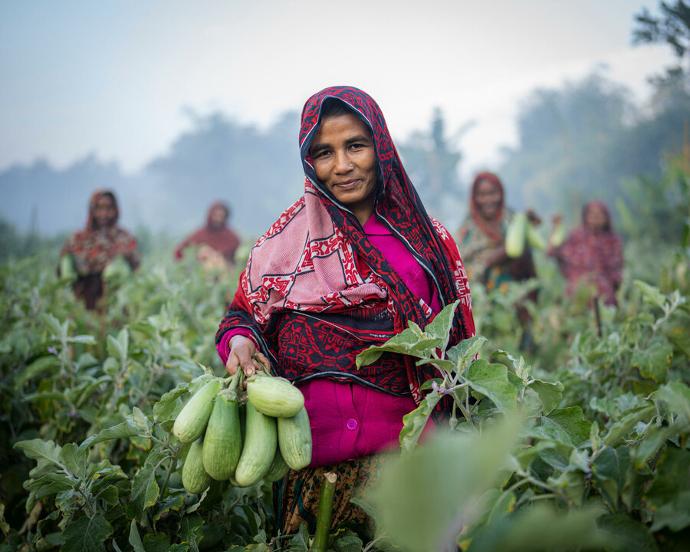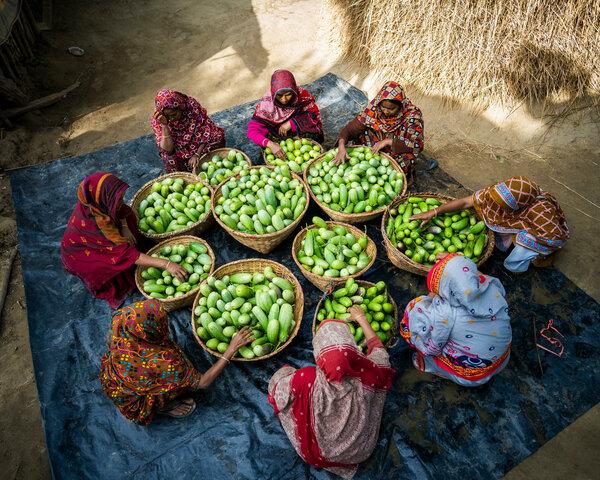Bangladesh horticulture sector study
SUMMARY
Advance Consulting carried out a study of the horticulture sector and supply chains with the aim to identify opportunities for sector development and cooperation between the Netherlands and Bangladesh. The study shed light on the organisation and practice of the horticulture sector in Bangladesh and 6 key vegetable value chains with recommendations for follow-up. One of the spin-off interventions is an onion initiative (Onion Impact Cluster), connecting Dutch and Bangladeshi private sector.
COUNTRY
Bangladesh
PERIOD
2021
SECTOR
Agriculture
CHALLENGE
Agriculture, and horticulture in particular, is one of the sectors of mutual interest for the Netherlands and Bangladesh. Therefore, the Netherlands Embassy in Dhaka was interested to explore cooperation opportunities in horticulture for Bangladeshi and Dutch companies and other stakeholders.
To formulate policies and interventions that will contribute to the development of the large horticulture sector in Bangladesh, while stimulating Dutch-Bangladeshi trade and investment, the Netherlands Embassy required a comprehensive overview of the status, trends and opportunities.
Bangladeshi horticultural sector is among the largest in the world, but it is currently coping with an increasing pressure on water, land and nutrients. Fast urbanisation and salinisation cause a decline in available agricultural land while at the same time, economic growth in combination with urbanisation drive the demand for more, and more nutritious food.
SOLUTION
Avance Consulting delivered a comprehensive report on the horticulture sector, with a set of actionable recommendations for private and public sector. To prepare this report, Advance Consulting has worked with Resilience from the Netherlands and with Edge Consulting from Bangladesh, which has interviewed tens of stakeholders in the country while Advance has assessed the (potential) interest and the needs of Dutch companies and organisations. Although Dutch horticulture sector is globally oriented, Dutch horticulture and seed companies have been reluctant to work in Bangladesh. Lack of knowledge about the country and its potential has been identified as one of the key reasons for limited cooperation in the horticulture sector.
RESULTS
The study was implemented during the Covid-19 pandemic, which has made data collection and dissemination more challenging. The report was finally presented during a webinar in October 2021, attended by over 100 stakeholders from the Netherlands and Bangladesh.
The report is publicly available through the website of the Netherlands Enterprise Agency (RVO) and can be accessed via the button below.
SUSTAINABILITY
Following the completion of the study, Advance Consulting has facilitated an impact cluster that brings together several Dutch suppliers of onion seeds and storage technology. This cluster, supported by RVO, is currently operational, with the first Dutch seeds and storage technology solutions in demonstration at Bangladeshi private sector partners.
“As Lal Teer we have worked with and are working with different Netherlands based organizations. Thus we can see the value of working with Netherlands. Areas of work include R&D collaborations where we need support to develop varieties which are more resilient to heat, rain, pest, diseases and salinity. As a sector, Bangladesh can benefit significantly from collaborating with the Netherlands specially in terms of research and development."
- Lal Teer is one of the Bangladeshi partners of the onion impact cluster. The company also collaborates with other Dutch seed companies on testing and trials of seeds for Bangladeshi market.

